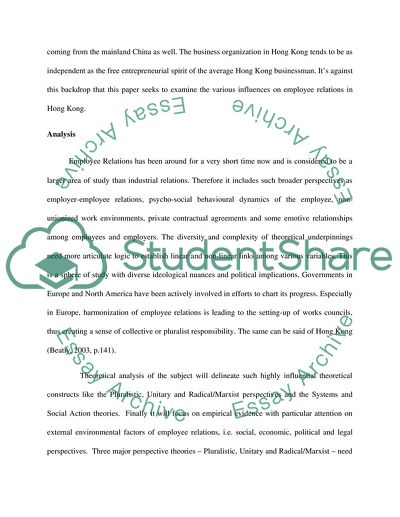Cite this document
(Trade Union Activity and Pluralistic Perspective Term Paper, n.d.)
Trade Union Activity and Pluralistic Perspective Term Paper. Retrieved from https://studentshare.org/marketing/1719046-a-critical-analysis-and-evaluation-of-the-way-in-which-the-economic-social-legal-and-political-contexts-influence-and-distinguish-the-employee-relations-system-in-hong-kong
Trade Union Activity and Pluralistic Perspective Term Paper. Retrieved from https://studentshare.org/marketing/1719046-a-critical-analysis-and-evaluation-of-the-way-in-which-the-economic-social-legal-and-political-contexts-influence-and-distinguish-the-employee-relations-system-in-hong-kong
(Trade Union Activity and Pluralistic Perspective Term Paper)
Trade Union Activity and Pluralistic Perspective Term Paper. https://studentshare.org/marketing/1719046-a-critical-analysis-and-evaluation-of-the-way-in-which-the-economic-social-legal-and-political-contexts-influence-and-distinguish-the-employee-relations-system-in-hong-kong.
Trade Union Activity and Pluralistic Perspective Term Paper. https://studentshare.org/marketing/1719046-a-critical-analysis-and-evaluation-of-the-way-in-which-the-economic-social-legal-and-political-contexts-influence-and-distinguish-the-employee-relations-system-in-hong-kong.
“Trade Union Activity and Pluralistic Perspective Term Paper”, n.d. https://studentshare.org/marketing/1719046-a-critical-analysis-and-evaluation-of-the-way-in-which-the-economic-social-legal-and-political-contexts-influence-and-distinguish-the-employee-relations-system-in-hong-kong.


